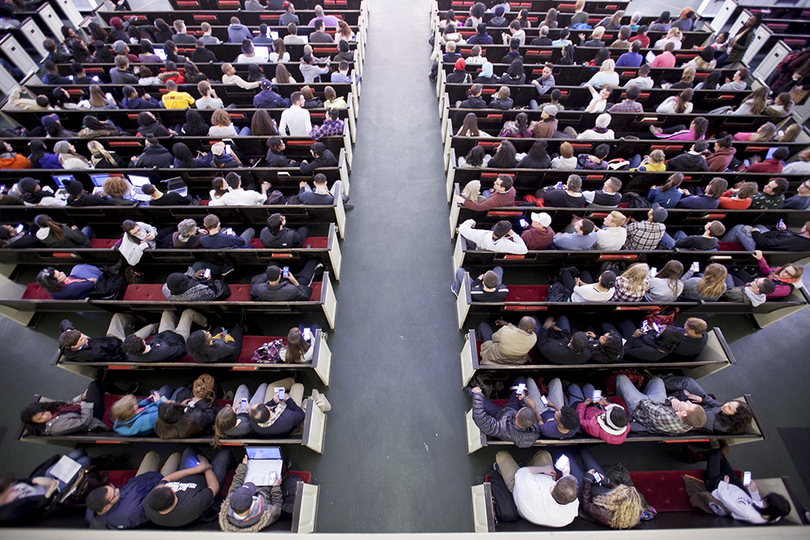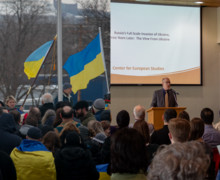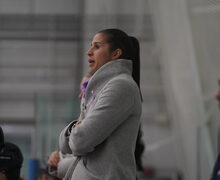Award-winning actor Forest Whitaker speaks about community building, problem solving
When he first started out as an actor, Forest Whitaker had movie roles that consisted of only one line.
“The only thing that divided me from other actors was that I was so obsessed. I would be willing to take a line for a movie and it would only have that one line and I would work on it for a week,” said Whitaker, who is now an Academy Award-winning actor.
The actor and philanthropist spoke at Alpha Phi Alpha, the Delta Zeta chapter’s fourth annual Truth Be Told speaker series on Wednesday night at Hendricks Chapel. In his talk entitled “The New American Opportunity,” Whitaker spoke about the importance of building community and working together to solve societal problems.
The group estimated a crowd of about 400-500 people came to the event, said Jacob Friesen Grant, the social and academic chair of Alpha Phi Alpha.
In 2008, Whitaker won the Best Actor Academy Award for his role in the movie “The Last King of Scotland.” Whitaker is also known for his work in recent films such as “Lee Daniels’ The Butler,” and “Vantage Point.”
Whitaker opened the conversation by discussing a few of the early influences in his life. He gave praise to his mother for teaching him to pursue his passions.
“When I was young, I woke up one Sunday and she said I needed to go to church. I asked her, ‘Why did I need to go to church?’” Whitaker said. “She said, ‘You don’t have to believe what I believe. You don’t have to go that route but you have to believe in something. You need to get out there and find what you believe.’”
He also highlighted the importance of technology in the advancement of recent social movements. Whitaker said he feels social media plays an important role in giving everyone a voice.
“Like the civil rights movement, everyone thinks of big figures but then there were thousands of people walking alongside that made it happen,” Whitaker said. “Now, it’s social media that can affect changes in individuals. You can have electronic marches.”
Whitaker talked throughout the night about the challenges he has faced as an African-American actor and about economic disparities in the United States. He said in order to move forward as a society, people need to be able to understand each other.
“I hope we can live up to the promise of equal opportunity and equal protection. We have to try and fight for our individual happiness,” Whitaker said.
The talk also featured a question-and-answer portion with the audience. During the Q&A, a man who said he was recently released from prison after spending 17 years in jail asked Whitaker what he could do to start a new life.
“I know it’s hard and I have dealt with a lot of people in situations like yours. I am just hoping that you have some support from other people in starting your new journey,” Whitaker said. “I have worked with many people that have been in prison and reclaim their lives in different ways. I only wish I could say more.”
Megan Murphy, a freshman music industry major, said she was inspired by his talk.
“He’s soft spoken, he cares about his craft, and he cares about the different projects he is involved in and I think that is an important model for everyone to take to be invested in what they’re doing everyday,” said Murphy.
Ronald Taylor, a senior political science and policy studies dual major, served as one of the committee heads for the event. Due to the sensitive nature of the speech, Taylor said he tried to organize the event to make sure that the conversation was constructive.
Taylor hoped attendees would leave able to acknowledge that America has a lot more work to do, and that they will be inspired to join in the work. He wanted students to gain an understanding of what it means to make it in America.
“Whitaker speaks on an upward of 200 years of systematic oppressions and narratives that have determined the agency of the people of color,” Taylor said. “He is an example of how we can overcome the barriers that do exist and what we can do in order to enable and empower ourselves.”
Published on March 25, 2015 at 11:48 pm
Contact Chizobam: cnwagwu@syr.edu







